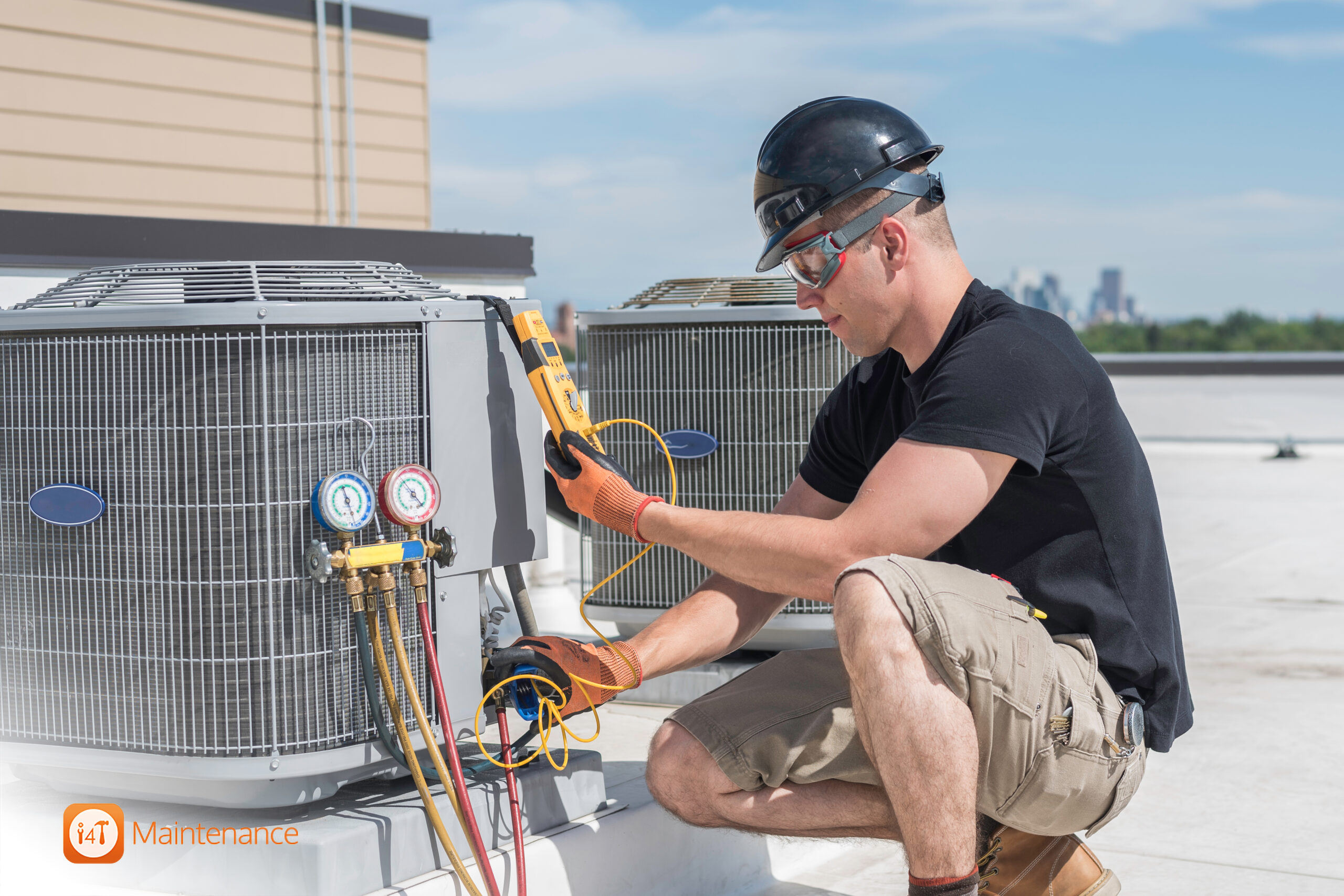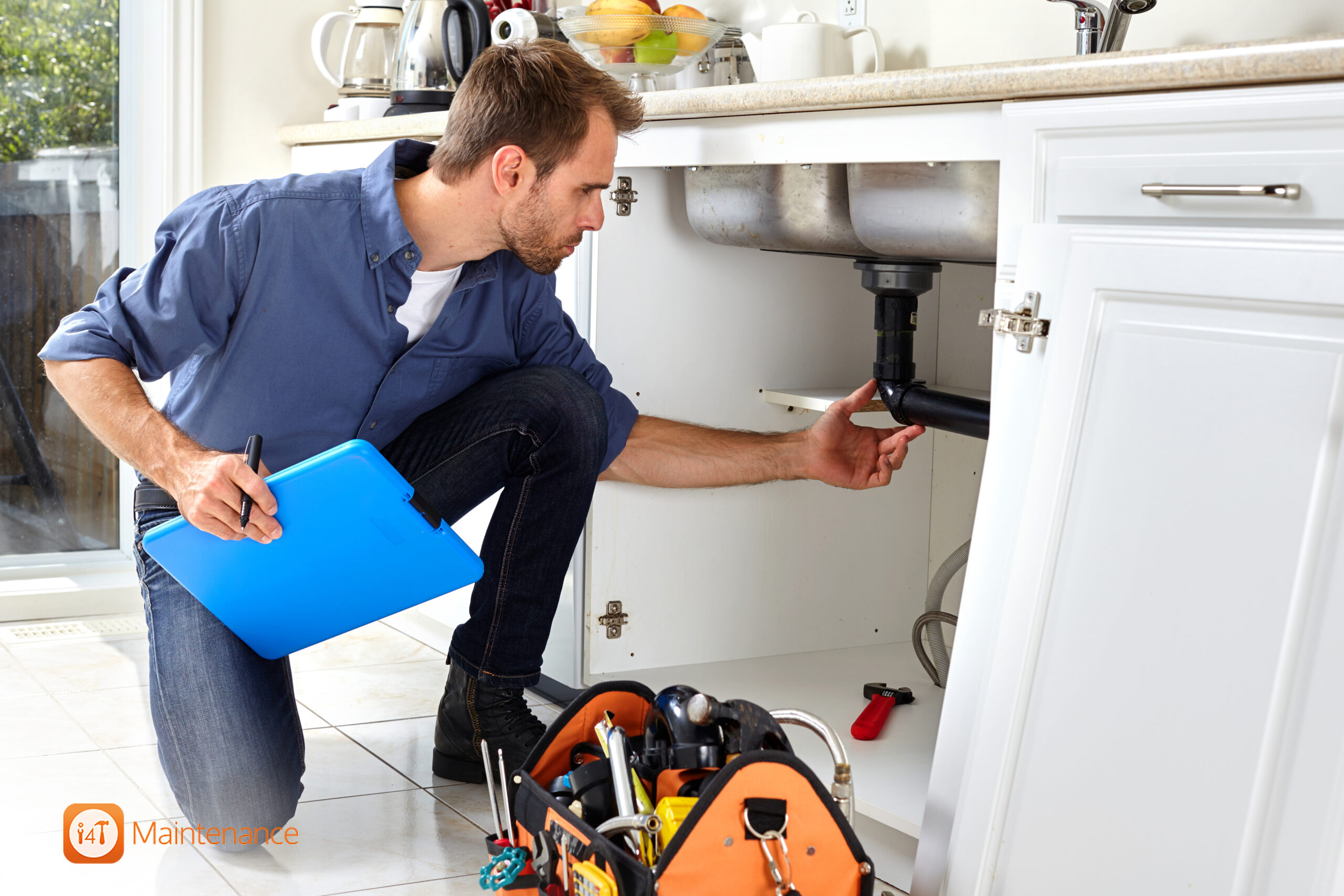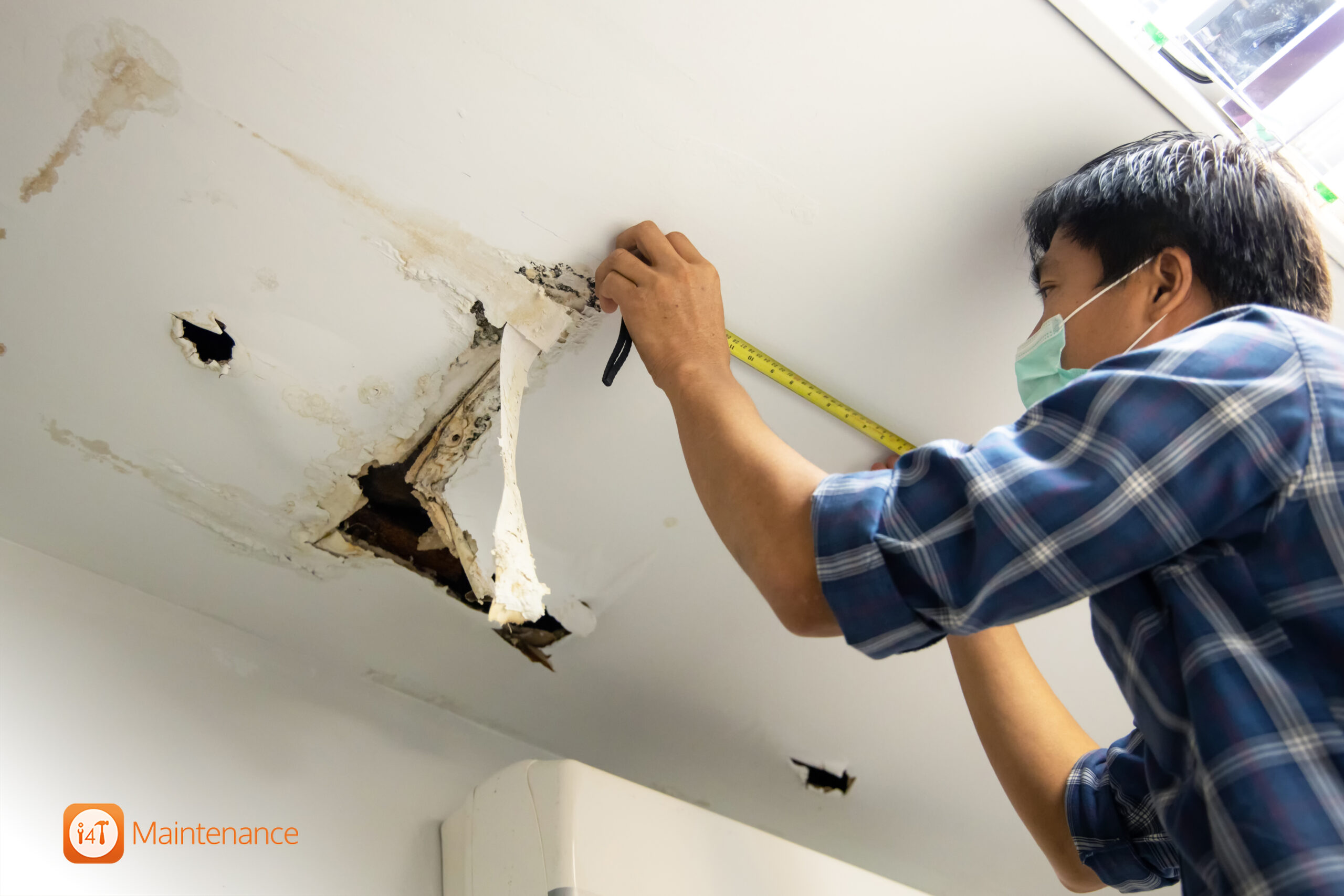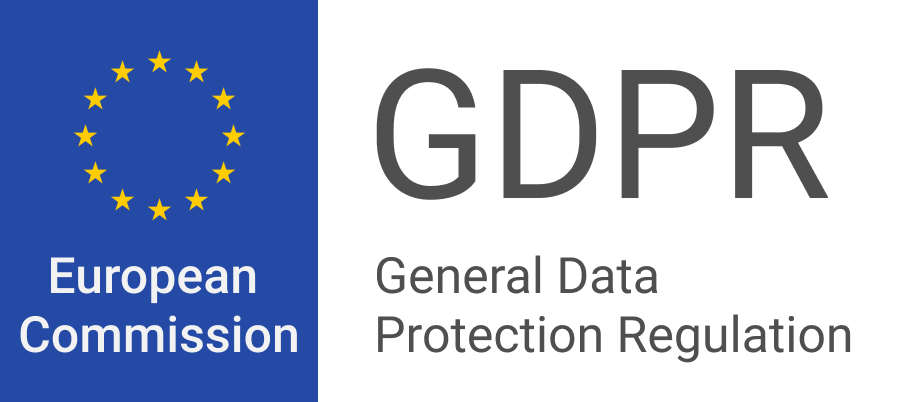The importance of keeping a property in good shape cannot be emphasized enough. It helps keep the occupants safe and comfortable and the property profitable. Also, when you take care of a building, it lasts longer, saving you in costly repairs or new installations. However, if you ignore regular maintenance work, they can turn into big issues that cost a lot to fix or can even lead to legal troubles.
In this article, we will talk about the top five things that usually need fixing in residential and commercial properties. We’ll discuss some problems while navigating through these common maintenance requests, and how software can help property managers handle these more efficiently.
Importance of Effective Maintenance Management
According to a report by Rent, nearly half (47%) of the tenants, make a maintenance request to their landlords or property managers, while living in the property.
When done right and on time, maintenance management serves as a vital tool in ensuring property’s safety and longevity.
Here are some of the leading reasons why property managers need to focus on effective maintenance management:
Increases tenant retention
A study by the Institute of Real Estate Management found that people are 10-15% more likely to continue living in well-maintained buildings.
Preserves the value of the property
The Appraisal Institute states that properties that are not well-kept regularly, go down in value by 10% or more over time.
Conserves energy
The U.S. Department of Energy says that regular care of heating and cooling systems can save 15 to 20% on energy use in a building.
Ensures legal compliance
Failure to meet property maintenance regulations and building codes can result in penalties and legal action. For example, in the U.S., poor building maintenance can cost between $200 to $20,000 in fines.
Saves money in costly repairs
Reactive maintenance is much more costly than planned maintenance. This is because you end up doing emergency repairs, that may cost you more in higher service charges, poorly planned maintenance work, and property damage.
When not done as needed, property managers can encounter several challenges including delayed response times, inefficient task allocation, and missed deadlines. It can also result in increased costs, and poorly kept records leading to compliance issues.
Most Common Maintenance Requests in Property Management

While property maintenance entails a long list of tasks that need to be addressed, let’s take a look at some of the most common maintenance requests property managers get.
HVAC Maintenance

Heating, ventilation, and air-conditioning are central to improving a property’s comfort. It is the leading type of maintenance request received by property managers with as much as 16% of all maintenance requests revolving around installation, repairs, or maintenance of HVAC systems.
Following are some of the most common HVAC maintenance requests:
- Inefficient heating or cooling
- Strange noises
- Bad odor
- Poor airflow
- Faulty thermostat
According to the U.S. Department of Energy, 20% to 40% of energy heating or cooling a building is wasted due to contaminants that make the system work harder. The study also found that the efficiency of an HVAC system can be increased by 15 to 20% with regular maintenance.
Plumbing Repairs

According to a study by Property Management Insider, plumbing issues make up approximately 15.8% of all maintenance requests, coming in second only to HVAC issues. These can range from minor disruptions to major problems, affecting a tenant’s safety and comfort and potentially causing significant damage to the property.
Some of the most common plumbing issues include:
- Leaky pipes
- Running toilets
- Clogged drains
- Low water pressure
- Faulty water heater
- Out-of-order garbage disposal
Ignoring these plumbing issues can lead to serious consequences. For example, just a minor leak if goes unnoticed, can end up wasting 90 gallons of water per day. Moreover, it can result in structural damage, mold growth, rotten wood, and foundation problems. When routine wear and tear is treated as urgent repairs rather than as a regular maintenance issue, it also ends up costing you more.
Electrical Repairs

According to the U.S. Fire Administration, electrical faults in office buildings are the second biggest cause of non-confined electrical fires. Electrical maintenance requests can vary in complexity, from simple light bulb replacement to whole property rewiring.
Some common electrical maintenance requests property managers handle include:
- Faulty or outdated electrical wiring
- Faulty outlets or switches
- Electrical shocks
- Problem with the circuit breaker
- Overloading issue
- Damage to appliances due to electrical surges
- Old light replacement or new lights installation
As a property manager, attending to most of the above-mentioned electrical issues must be done on an emergency basis, as they can pose a severe risk if left unattended. Using property maintenance software to handle service requests, ensures these issues are addressed efficiently.
Appliance Repairs

With our lives so much dependent upon appliances installed everywhere, a single malfunction can hijack our whole day. This makes appliance repairs a leading maintenance request for property managers.
According to HomeAdvisor’s 2021 True Cost Report, homeowners spent on average between $175 and $1,000 to repair an appliance, with the average cost of around $350.
That being said, some of the most common appliance repair requests include:
- Refrigerator repairs
- Oven/stove repairs
- Dishwasher repairs
- Washing machine repairs
- Dryer repairs
- Microwave repairs
- Garbage disposal repairs
- Air conditioner repairs
- Heater repairs
- Hot water system repairs
Regular maintenance can prolong the lifespan of appliances and ensures they are always up and running when you need them.
Structural Repairs and Maintenance

According to Forbes, nearly 50% of surveyed homeowners experience structural damage due to pests, yet are unwilling to pay pest control costs.
Structural repairs account for a major portion of maintenance requests. These repairs when carried out correctly can significantly contribute to tenants’ safety, well-being, and overall satisfaction.
Promptly addressing a building’s structural issues can keep problems from escalating or turning into safety hazards, which may lead to legal consequences.
Some of the most common structural issues tenants face include:
- Termites
- Wall and ceiling cracks
- Timber rot
- Damp floors
- Damaged roof
- Settling foundation
- Stucked windows and doors
- Wall and ceiling cracks
- Floor repairs
- Deck and balcony repair
- Basement waterproofing
- Gutter repairs
- Broken chimney repairs
Note that some maintenance issues can be interlinked. For example, a plumbing issue, may not call for a structural repair, however, if left unattended might end up weakening the foundation of the building.
All of these repairs must be handled by licensed contractors, to ensure property’s safety and longevity.
The Role of Maintenance Management Software in Property Management
Maintenance management software is quickly gaining popularity when it comes to addressing issues like handling service requests, managing vendors, keeping track of inventory, scheduling inspections, tracking maintenance progress, and disbursing payments to suppliers.
For property managers, maintenance management software are delivering tangible benefits like:
- Cost efficiency
- Responsiveness
- Maintenance coordination
- Communication
- Scheduling
- Reporting
- Tenant portals
- Vendor selection
- Accounting integration
- And more.
i4T Maintenance is one such Maintenance Management Software, designed to enhance the value of your properties and keep tenants happy.
From work order management to compliance management, real-time progress tracking, process automation, and mobile access, you can handle all your maintenance requests from one place. It also offers integration with world-class property management apps such as Property Me, Console, and Urbanise.
Sign up today to book a demo and experience the difference it can make to your business.
Wrapping up
A well-maintained property is not just legally compliant and makes good business sense, but is also a place that tenants can proudly call ‘home’.
Property maintenance plays a vital role in helping property managers achieve these goals. From HVAC to plumbing, electrical, appliance, and structural repairs, a property must be diligently maintained. This ensures it is safe, comfortable, and profitable.
Not doing so, can result in unhappy tenants, loss of business as well as legal consequences.
Software to seamlessly handle maintenance requests from start to finish can ensure tenant satisfaction. i4T Maintenance can help you manage property maintenance efficiently, transparently, compliantly, and safely.
FAQs
A: In a property, many things could go wrong. These can include plumbing problems like leaky pipes, or HVAC issues with heating and cooling systems. It may also include electrical problems, fixing broken appliances, and repairing parts of the building like roofs or floors.
A: Checking and fixing things before they break, called preventive maintenance, is very important. It helps catch small issues before they become big, expensive problems. Regular checks and fixes can help save money in the long run.
A: Maintenance management software makes it easier to handle all tasks related to fixing and maintaining a property. It helps keep track of what needs to be fixed. It also helps you plan maintenance work, follow up on progress, and manage the cost. It also helps everyone involved communicate better and work more efficiently.
A: Buildings that are well-kept usually have people living there for a longer time. This is because their needs are listened to and addressed promptly.
A: Regularly maintaining a property is important to make sure it is safe and meets all the regulations. Problems like faulty wiring can cause dangers like fires. So, regularly checking and maintaining all parts of a property can help avoid any legal issues and possible penalties.
Hot off the press!

With our cutting-edge technology and in-depth knowledge of how the Field Service Management sector operates, the i4TGlobal Team loves to share industry insights to help streamline your business processes and generate new leads. We are driven by innovation and are passionate about delivering solutions that are transparent, compliant, efficient and safe for all stakeholders and across all touch points.









